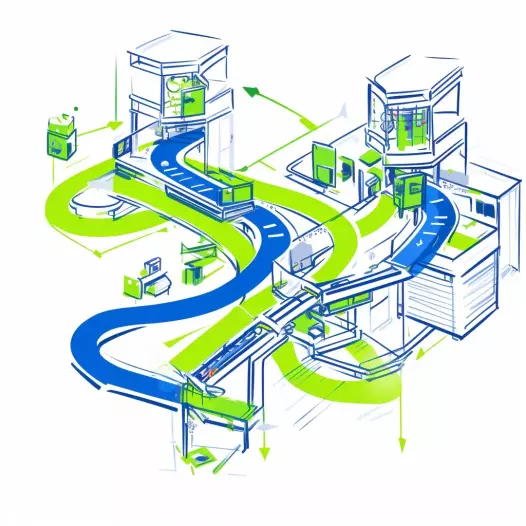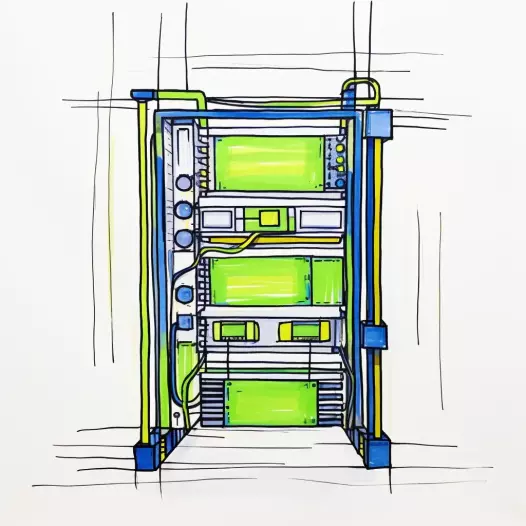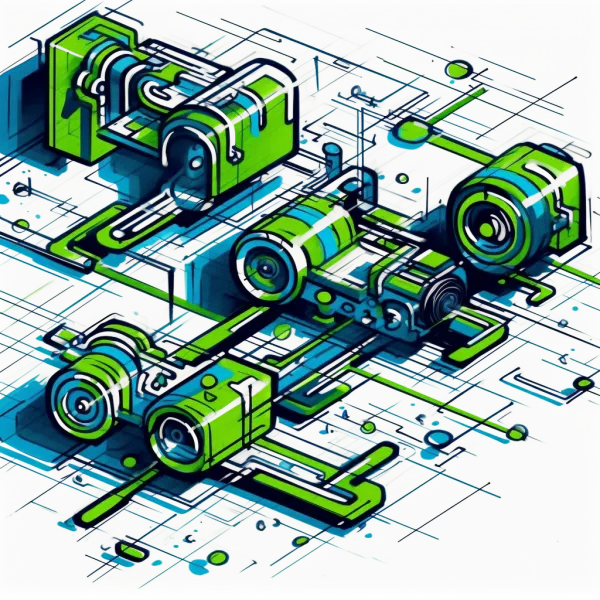Are you ready to take your business to the next level?
In a constantly changing business world, agile and efficient processes are crucial for success. The transformation of business processes plays a central role in keeping companies competitive, innovative, and customer-oriented.
Talk to usTransforming business processes
Transform Business Processes
We prepare your company for growth.
End to End Operations
Processes must be planned and implemented holistically.
Robotic Process Automation
The fast way to automate your processes
QA-Automation
Secure ongoing development through continuous testing.
Unleash your company's potential through Business Process Transformation
Cost Savings: We eliminate inefficient processes and employ cutting-edge technologies to reduce your expenses.
Increase in Productivity: Our transformation boosts the efficiency and performance of your company.
Improved Customer Experience: We optimize processes to ensure your customers are more satisfied than ever before.
Increased Agility: With our help, you can flexibly respond to market changes and implement innovations faster.
Together, we focus on innovation and growth to successfully position your business in a constantly changing business world.
End to End Operations
In today's digitized business world, End to End (E2E) Operations are the backbone of efficient and coordinated IT strategies. This approach aims to connect processes seamlessly from their beginning to their end, enabling companies to reduce the complexity of their IT environments.
- Proactive problem solving
Traditional IT management approaches often react to problems after they have already occurred. End2End Operations provide a holistic overview of all IT processes. This enables companies to identify potential problems early on and act proactively before they lead to larger disruptions. - Efficiency increase
In complex IT environments, there are often many redundant and overlapping processes that bind resources and affect efficiency. End2End Operations enable companies to overlook the entire workflow and identify inefficient processes. By integrating and automating these processes, companies can streamline workflows and significantly increase productivity.
We can optimize these areas
Robotic Process Automation in modern companies
Robotic Process Automation in focus
Robotic Process Automation (RPA) is revolutionizing the way companies optimize their internal processes. By automating repetitive and rule-based processes, RPA enables companies to increase their efficiency and reduce costs while freeing up their employees for more valuable tasks. With the introduction of AI and machine learning in recent years, RPA has made a quantum leap and can now even automate processes involving decision-making.
Potentials of RPA
Through RPA, companies realize significant time savings by completing processes that traditionally took several hours or days in a fraction of the time. At the same time, the standardized data entry and processing through RPA leads to improved data quality, minimizes human errors, and increases data consistency. These efficiency gains enable increased responsiveness, allowing companies to react more agilely to changing business requirements and process customer inquiries more quickly. Overall, the full use of RPA gives companies a competitive advantage through process optimization and rapid adaptation to market changes.
Our Approach
Process selection: It is crucial to select the right business processes for automation. Companies should identify processes that occur frequently, are well defined, and offer a high return on investment.
Integration: The ability of RPA to interact with and complement existing systems is crucial. Seamless integration ensures maximum efficiency and smooth information flow.
Management and monitoring: With the growing number of bots in the company, it is becoming increasingly important to manage them effectively, monitor their performance, and ensure they function as intended.
Maximizing RPA benefits: Let's shape your future together.
When properly implemented, RPA can be a powerful tool that leads companies into the future. If you're thinking about how RPA can help your business, talk to us and let's find out together how you can get the maximum benefit from this technology.
QA-Automation
Every customer has individual goals in the area of test automation, as well as different development processes and available resources. Depending on the requirements, we develop a customized test automation strategy that complies with the best practices defined by ISTQB or other organizations, in order to find the best possible comprehensive solution for the customer.
In accordance with the individually chosen strategy, the selection and implementation of suitable test automation tools takes place in consultation. These include frameworks, scripting languages, and test automation tools.
Continuous Integration (CI) and Continuous Deployment (CD)
Automated tests support the seamless integration of tests into CI/CD pipelines, enabling faster and more reliable deployment of software.
Comprehensive test coverage
Automated tests can provide comprehensive coverage of various test cases and scenarios that would be difficult to perform manually.
Early detection of errors
Automated tests can be integrated into the development process early on to detect errors at an early stage when fixing them is less costly and more cost-effective.
Scalability
Automated tests can be easily scaled to various configurations, platforms, and environments to ensure the software functions correctly everywhere.
Our competencies in the field of test automation
A test automation team needs a wide range of competencies to successfully perform automated tests and ensure the quality of software. Here are some of our key competencies:













